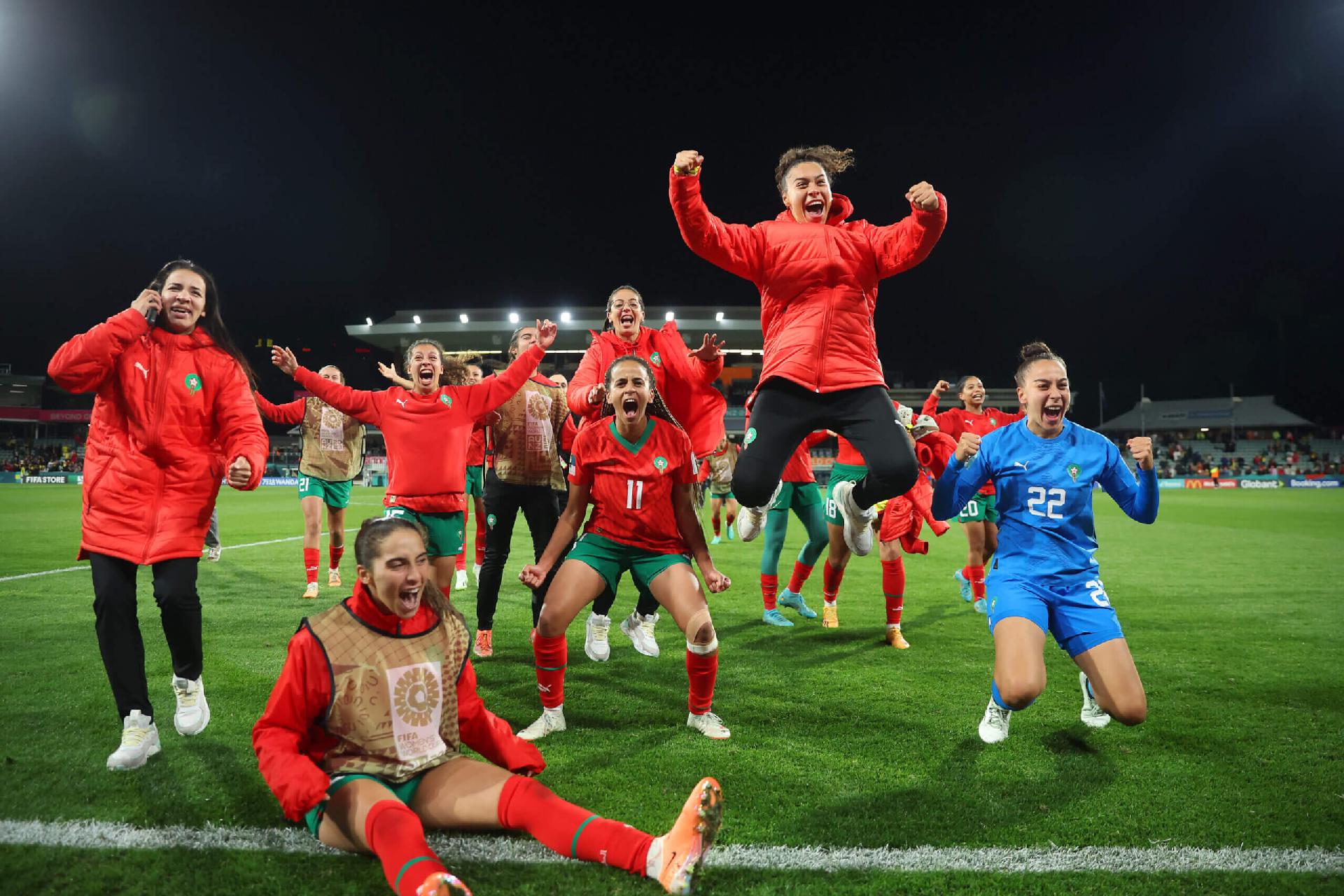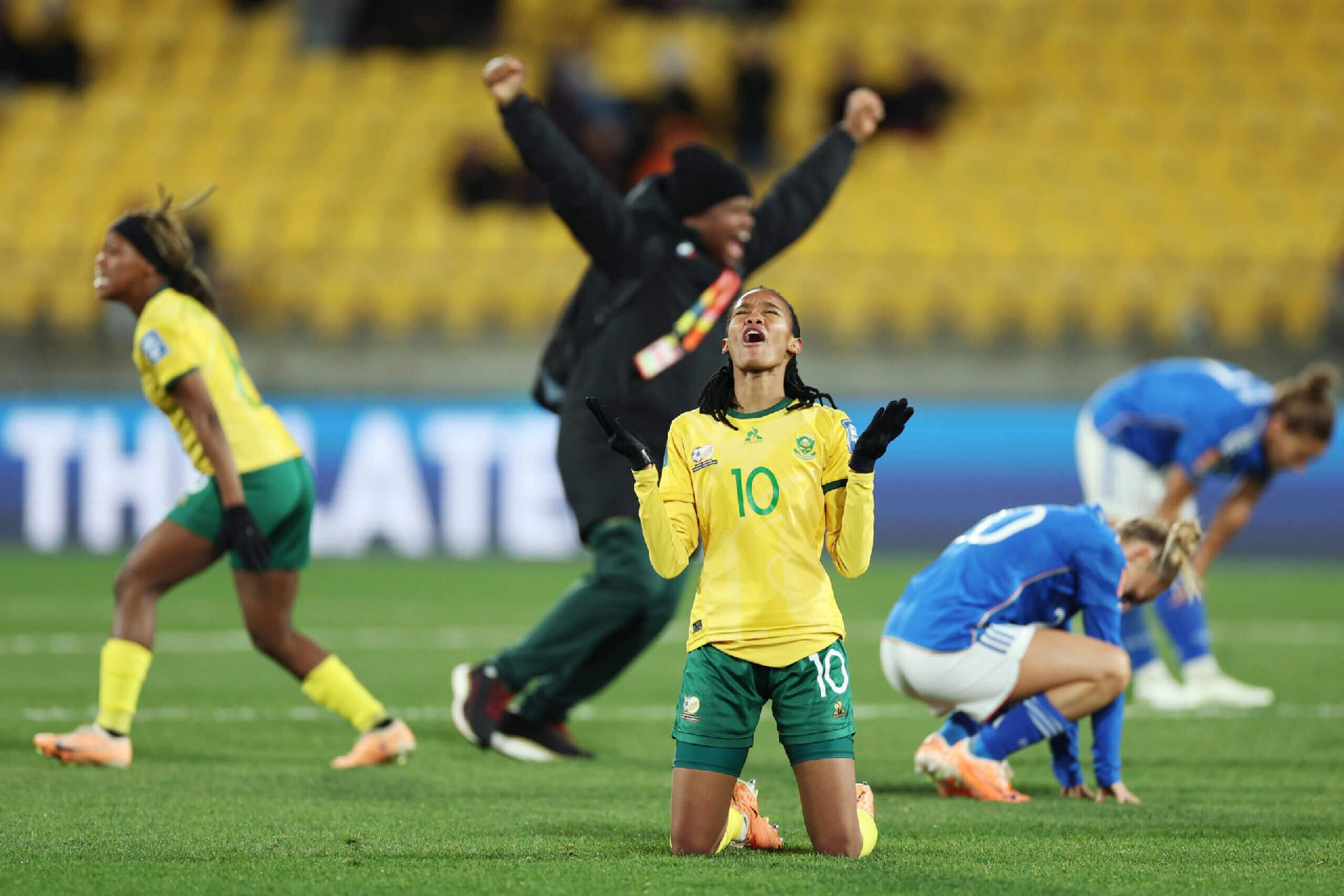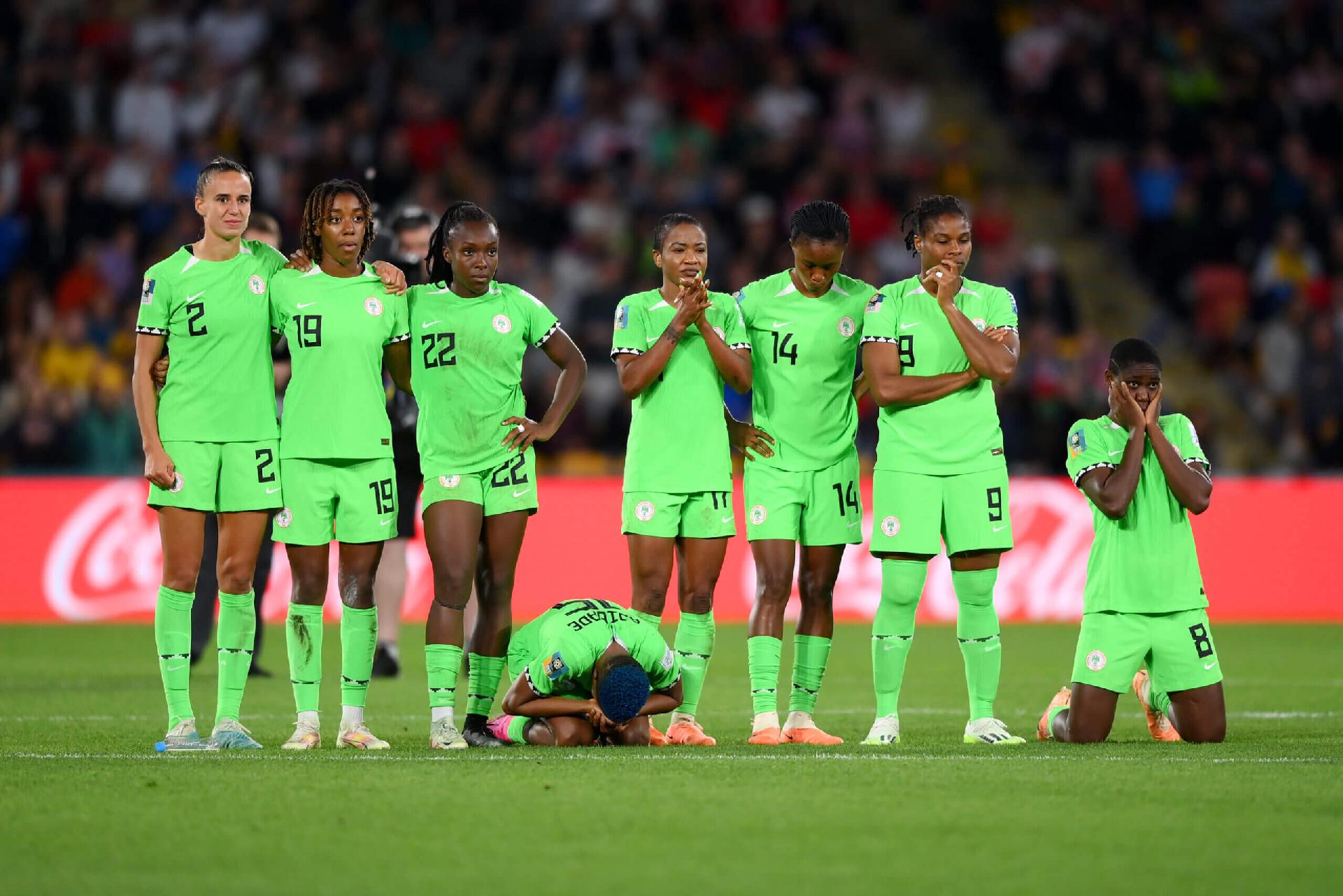Unprecedented access to data helped African sides thrive in Women’s World Cup
autty 2023-12-26 14:19:25 评论
We've had another landmark year for women's football in 2023 — more record attendances, more prominence on television and, above anything else, a truly fantastic World Cup in Australia and New Zealand.

While much of the progress in the women's game over the last half-decade has been concentrated in wealthy Western countries, a notable feature of this World Cup was the improved performance of the outsiders.
First-time qualifiers the Philippines defeated New Zealand. Fellow debutants Haiti played some of the most exciting counter-attacking football in the tournament. Jamaica, meanwhile, recorded draws against both France and Brazil and reached the knockout stage for the first time.
“People expected really lopsided scores,” said Jill Ellis, who won the Women's World Cup as manager of the United States in 2015 and 2019. “But we saw competitive games. People have asked me, 'What's your most inspirational moment?'. For me, it's Morocco getting to the knockout round.”
The progress of the African nations was impossible to ignore.
Three of the four participants from the Confederation of African Football (CAF) advanced to the knockout phase. Nigeria shocked Australia to win 3-2 in Brisbane, one of the most memorable matches of the tournament. South Africa came from behind to score a last-gasp winner to qualify at the expense of Italy. Morocco, meanwhile, bounced back from a 6-0 thrashing by Germany to finish ahead of them in the group. Zambia were less successful, suffering heavy defeats to Spain and Japan, but they did record a 3-2 victory against Germany in a pre-tournament friendly and ended their involvement with a 3-1 defeat of Costa Rica.
The African sides' good performances owed to impressive tactical organisation, improved physicality and sometimes a bit of luck. It was assisted, too, by the increased use of data.
The rise of analytics has been one of sport's dominant themes over the past decade, and is regularly cited as a way underdogs can close the gap to stronger sides. But data costs money. And in women's football, money is often in short supply, particularly among less established nations.
Enter CAF, which struck a deal with data provider Opta that not only gave individual teams access to figures and video far beyond what they had previously enjoyed, but also allowed them to take an extra analyst to the tournament. It meant the African sides, regularly called 'naive' after defeats on the world stage, were more prepared than ever.
“The fact that CAF gave us this package as a reward for qualifying for the World Cup was huge,” says Shilene Booysen, technical advisor for South Africa. “I don't think they could have done a better thing than giving us what they gave us. They loaded everything from the last two years of every team that we would face in the World Cup. That was huge, because it's not something we would have been able to access otherwise.
“The amount of data these days that you have to analyse, and the timeframe in which you have to analyse it… I can't even explain it. At World Cup 2019, I was by myself, I did everything. I did our team, the opposition team, breaking down individual players — and half the time, things got lost in translation because it was just too much data. This time, we came with two analysts as well as me.”
It is often assumed that footballers are reluctant to embrace analysis tools, and perhaps that was the case a decade or more ago. But these days, when even amateur athletes can access reams of data on their workouts and subsequent recovery through smartphones, many in the modern game want as much information as possible.
“The players were very receptive to it,” says Terry Eguaoje, a long-time analyst for the Nigeria men's team, who worked with their women's side in the summer and describes the data available to him as “a lot more robust and effective” than what he was accustomed to working with.
“A few times, the captain (Onome Ebi) came to me and asked if I could send certain videos of a previous game to certain players, because they have conversations among themselves about areas of improvement,” Eguaoje says. “They do take it seriously, and I had several requests as a video analyst to help them out: 'I want to see this or that', and I could provide those data and videos. That was absolutely beneficial for us.”
The most important use of data, though, was in scouting the opposition.
“If you look at Sweden, we needed to come up with a strategy because, physically, they were always going to outmuscle us with their high press,” says South Africa's Booysen. “So we looked at games when they played weaker opposition, a little similar to us, we could see what their game plan was, and that comes from the data. From that, you can say, 'OK, what do we need? We need players that can play under pressure, and a goalkeeper that can get you out of pressure'.
“A lot of what we did at the World Cup was based on knowing what the opposition was going to do. And that comes from all the data that you've collected over weeks and months, and putting it together to make sure the coach has the best opportunity to select a team based on the facts. It was all based on data and looking at the video.”
South Africa took a surprise lead against eventual bronze medalists Sweden, before being pegged back and then conceding a 90th-minute goal at a set piece to lose 2-1. They subsequently went 2-0 up against Argentina and drew 2-2, before a stunning 3-2 victory over Italy confirmed their place in the Women's World Cup knockout stage for the first time.
South Africa's Linda Motlhalo celebrates against Italy (Hagen Hopkins – FIFA/FIFA via Getty Images)

Booysen, though, admits that sometimes, first-hand knowledge of players is as important as data.
When Italy brought in 23-year-old centre-back Benedetta Orsi for her tournament debut against South Africa in that deciding group game, the coaching staff consulted captain Refiloe Jane, her team-mate at Italian club Sassuolo, who was injured but was almost acting as their coach on the sidelines.
It was agreed to press Orsi a certain way. Half an hour in, Orsi overhit a backpass and scored a comedic own goal. The celebrations from striker Thembi Kgatlana weren't those of someone whose team had simply got lucky, but one who had carried out a plan.
“Jane taught us everything that we wanted to do today,” said Kgatlana after the win.
The actual manager, Desiree Ellis, agreed.
“The influence Refiloe had on the bench as the captain was immense,” she said. “We knew she had insight, she knew the Italian team inside-out, and the information she gave us was invaluable.”
Increased availability of data and video also played a part in these sides' knockout-tie preparations.
In the round of 16, South Africa performed excellently against the Netherlands, beaten finalists at the previous World Cup, but bowed out of the tournament after a 2-0 defeat. The fact the Netherlands' goalkeeper Daphne van Domselaar was voted player of the match, after a string of fine saves, underlines the extent of South Africa's fine performance.
Nigeria, too, dominated their last-16 clash against European champions and eventual finalists England and seemed set to get the breakthrough — until Lauren James' 87th-minute red card, curiously, seemed to cause them more problems than the English.
The tie finished goalless after extra time and went to a shootout.
“The head coach specifically asked me if I could get the videos of the penalties taken by the English team,” recalls Eguaoje. “From the videos I had, there was just one penalty shootout England had played in (against Brazil in April's Finalissima), and that wasn't enough.
“But through Opta, I could get videos of almost every single one of the English players' penalties that they took for their clubs. So that was very helpful because I was able to send it out to the head coach, to the goalkeeper and the goalkeeper coach… and, well… we lost to England on penalties! So you can take whatever you want from that, but that was very helpful for us.”
Nigeria lost to England in a last-16 penalty shootout (Justin Setterfield/Getty Images)

For African nations to progress further, data will play a key role in enabling them to compete against stronger nations, says Booysen. “For the women's game in Africa, I want them to embrace technology. They need to embrace data, what it can bring and how it can evolve your team. It's not something that they think is a must-have, they still think it's a luxury. And that's something we need to change.”
(Top photo: Sajad Imanian/DeFodi Images via Getty Images)
- 消息参考来源: SN_SPIDER_MANUAL
- 严禁商业机构或公司转载,违者必究;球迷转载请注明来源“懂球帝”
- 懂球帝社区规范:抵制辱骂

